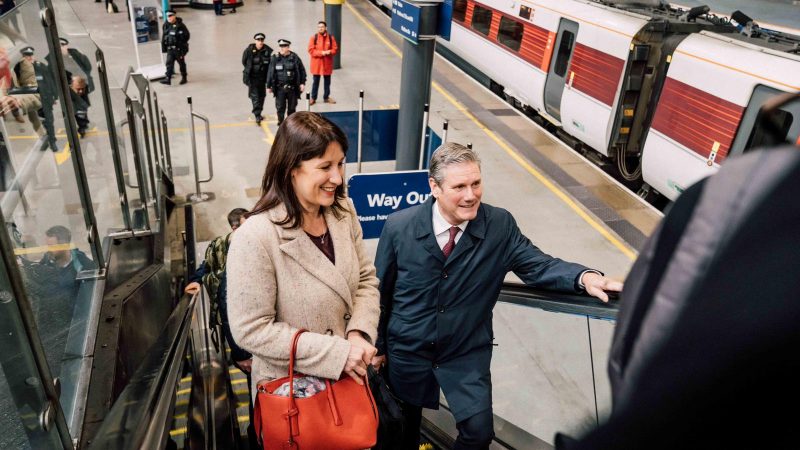
Union leaders have denounced government plans to further crack down on the right to strike. Addressing the Commons during Prime Minister’s Questions on Wednesday, Rishi Sunak announced that he had been working on “new, tough laws” and claimed that it was his “duty to take action” if the unions continue to be “unreasonable”. A variety of measures are thought to be under consideration, but the proposal that has caused the most alarm is a potential ban on ambulance workers and firefighters going on strike. Fire Brigades Union general secretary Matt Wrack – whose union is currently balloting its members on industrial action – said moves to further curb the right to strike would be an “outrage in a so-called democracy” and “in keeping with the actions of a dictatorial regime”.
Labour also criticised the rumoured plans, with Rachel Reeves arguing that banning emergency service workers from going on strike was the “wrong solution to a very serious problem”. The Shadow Chancellor added: “Instead of trying to stop industrial action through legislation, the government should be trying to resolve these issues that are causing key workers to take this action in the first place.” But Reeves and Labour leader Keir Starmer attracted criticism of their own on Thursday over reports that they refused to commit to repealing the proposed anti-strike legislation when in government. Addressing attendees at Labour’s business conference, Reeves said committing to reverse the plans was “jumping the gun a little bit”, adding: “The Conservatives U-turn every day of the week, and I would expect to have several more before we get to the next election.”
A similar line was used by Labour on Wednesday about the government’s bill on minimum service levels during transport strikes. A Labour spokesperson said the party would oppose the “unworkable” legislation but added that they could not commit to repealing it if the party took power because the laws had not yet been passed. As recently as October, deputy Labour leader Angela Rayner wrote in a piece for LabourList that “restrictions on union activity” are “holding back living standards and the economy” and declared that Labour would “stand firm against this government’s vindictive and reckless anti-worker and anti-trade union plans”. In this context, Starmer and Reeves’ failure to unequivocally condemn the government’s proposals is something of an own goal, which will add to criticism that Labour is sitting on the fence when it comes to industrial disputes.
Another two Constituency Labour Parties (CLPs) selected their parliamentary candidates for the next election last night. Members in Wrexham picked current CLP vice-chair Andrew Ranger, while Scunthorpe CLP opted for former MP Nic Dakin, who previously represented the seat from 2010 to 2019, when he was unseated by Tory Holly Mumby-Croft.
Earlier this week, I interviewed shadow homelessness and rough sleeping minister Paula Barker about the work she has been doing since her appointment in October. She told me about the need to develop a strategy for homelessness “as a whole”, incorporating considerable cross-departmental working. “This is an enormous challenge for any government,” Barker said. “But it’s a challenge that I want to ensure that the Labour government rise to and make sure that we get it right.” Read the full interview here.
Also on LabourList this morning, we have a piece from Navendu Mishra on the UK’s trade negotiations India. Mishra argues that, though a deal is vital, the government must ensure that it does not undermine safeguards in areas such as the environment, worker and gender rights and health.
Sign up to LabourList’s morning email for everything Labour, every weekday morning.



More from LabourList
‘Security in the 21st century means more than just defence’
‘Better the devil you know’: what Gorton and Denton voters say about by-election
‘Unity or division’: Starmer’s message to voters in Gorton and Denton